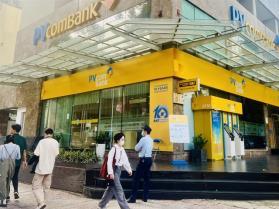This shift has been encouraged by Resolution 68/NQ-CP, a policy that helps unlock capital access for innovative enterprises.

HÀ NỘI — With Việt Nam’s growth increasingly driven by startups and small and medium-sized enterprises (SMEs), banks are shifting gears — moving from collateral-based lending to risk assessments rooted in business potential and model strength, according to industry experts.
This change is gaining traction under Resolution 68/NQ-CP, a government policy aimed at unlocking capital for innovative enterprises.
For years, SMEs and startups have faced a classic Catch-22: they need capital to build assets but cannot borrow without assets to pledge. As a result, many high-potential firms have been forced to turn to venture capital, often at a much higher cost.
The resolution marks a pivotal shift in the new-economy landscape. Instead of over-relying on collateral, credit institutions are now encouraged to assess loan applications based on business feasibility, cash flow potential and the strength of the founding team’s execution capabilities.
Banking insiders say this reflects a broader transformation in the digital era, where company value is measured not only by physical assets but also by the ability to generate future returns — a form of opportunity cost that banks are now more willing to recognise.
Recent statistics show Việt Nam has about 913,755 active SMEs, accounting for nearly 98 per cent of all enterprises. Sector-wide credit growth reached 10 per cent by the end of Q2 2025, with the SME and startup segment posting an impressive 17.51 per cent — clear evidence of capital flows re-balancing toward this cohort.
Banks have quickly found new ways to partner with SMEs and startups, helping them solve the capital-access puzzle and build for the long term.
To keep pace with the trend, many banks are rolling out tailor-made financial solutions and streamlining approval processes for high-potential firms. Some are also synchronising initiatives to build their own financial ecosystems — linking closely with investment funds and corporate supply chains — to broaden both the number of clients and the sectors they can finance.
"Our philosophy is long-term companionship: you may be small today, but you could be a unicorn tomorrow, and that calls for long-term commitment from all sides,” said OCB CEO Phạm Hồng Hải.
For startups specifically, Hải highlights three pillars that underpin a bank’s confidence: the founder, transparent and stable cash flows and the feasibility and scalability of the business model.
Beyond providing capital — and with support from Japan’s Aozora Bank — OCB continues to accompany startups through subsequent growth stages such as scale-up, IPO, LBO or MBO.
In parallel, OCB offers financial and strategic advisory services to help startups standardise operations, strengthen governance and connect with international investors.
Among the portfolio are names such as M Village (a design-forward lodging chain for young customers), Buymed (a B2B pharmaceutical distribution platform) and Ecomobi (a social-selling platform operating in five Southeast Asian markets). OCB has supported these companies from funding through to digital financial solutions, systems integration and strategic advice on scaling, long-term IPO road-mapping and near-term LBO/MBO options.
With policy tailwinds and banks’ proactive stance, the market is poised to develop a more flexible financial ecosystem in the period ahead, one where SMEs and startups not only find it easier to access capital but are also accompanied over the long haul to fully unlock their growth potential in the new-economy era, according to economists and banking experts. VNS





